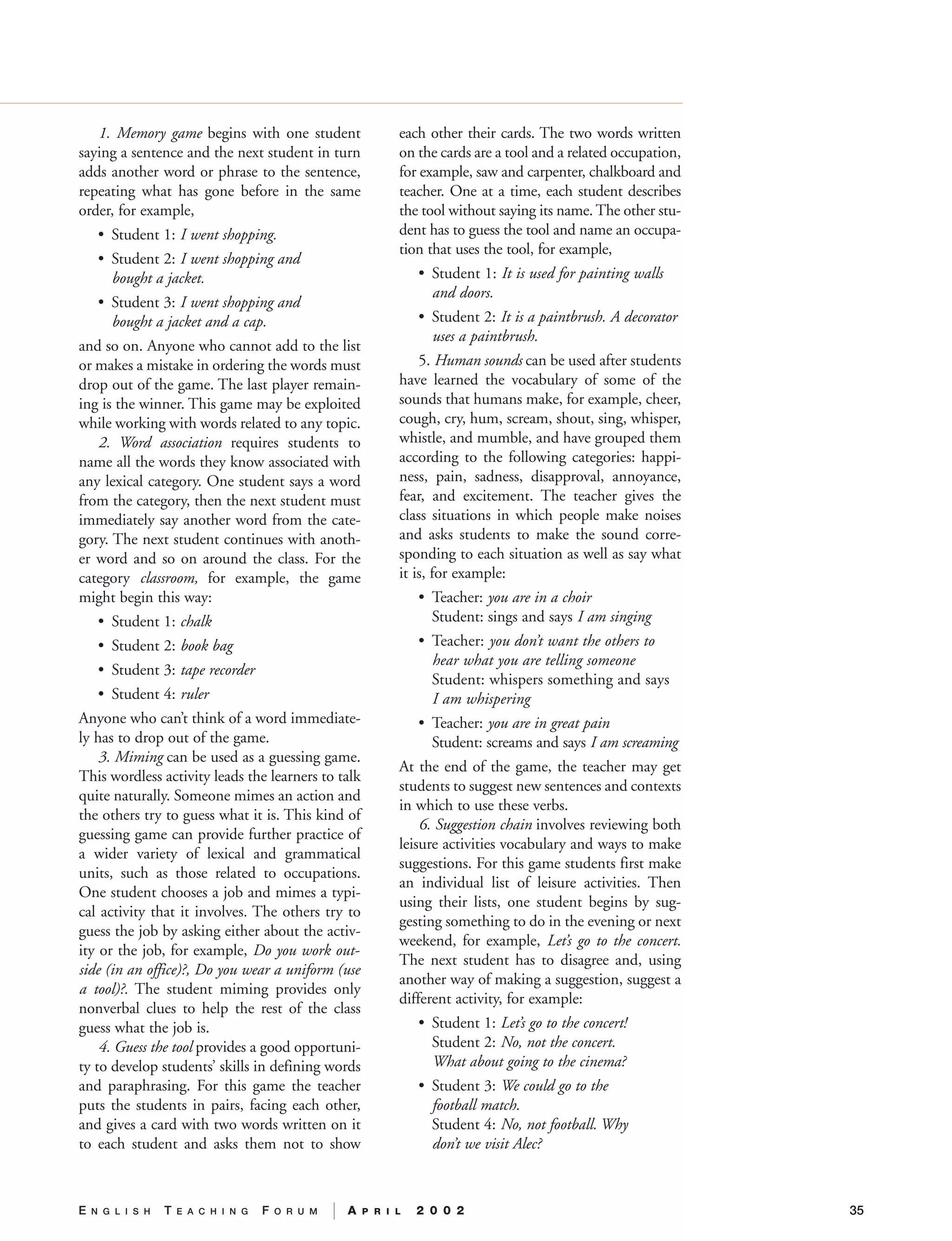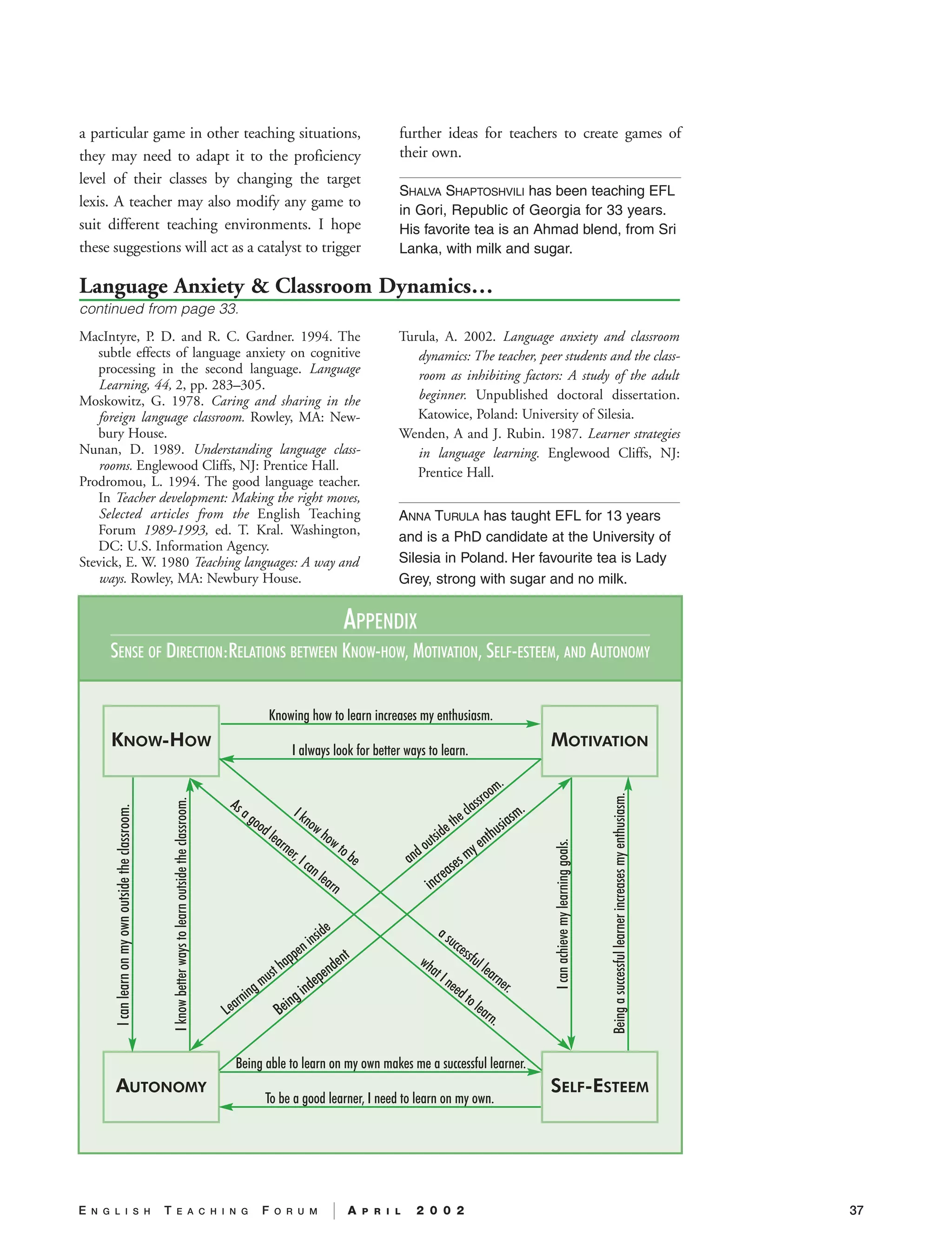Games are an important part of language teaching that allow students to practice vocabulary in an enjoyable way. This document describes several vocabulary games teachers can use, including memory games to practice recalling words in sequence, word association games to practice different lexical categories, miming games to act out meanings without words, guessing games to define tools and occupations, and suggestion chain games to practice leisure activities and making recommendations. The games provide fun ways for students to reinforce vocabulary through interaction and competition with their classmates.



